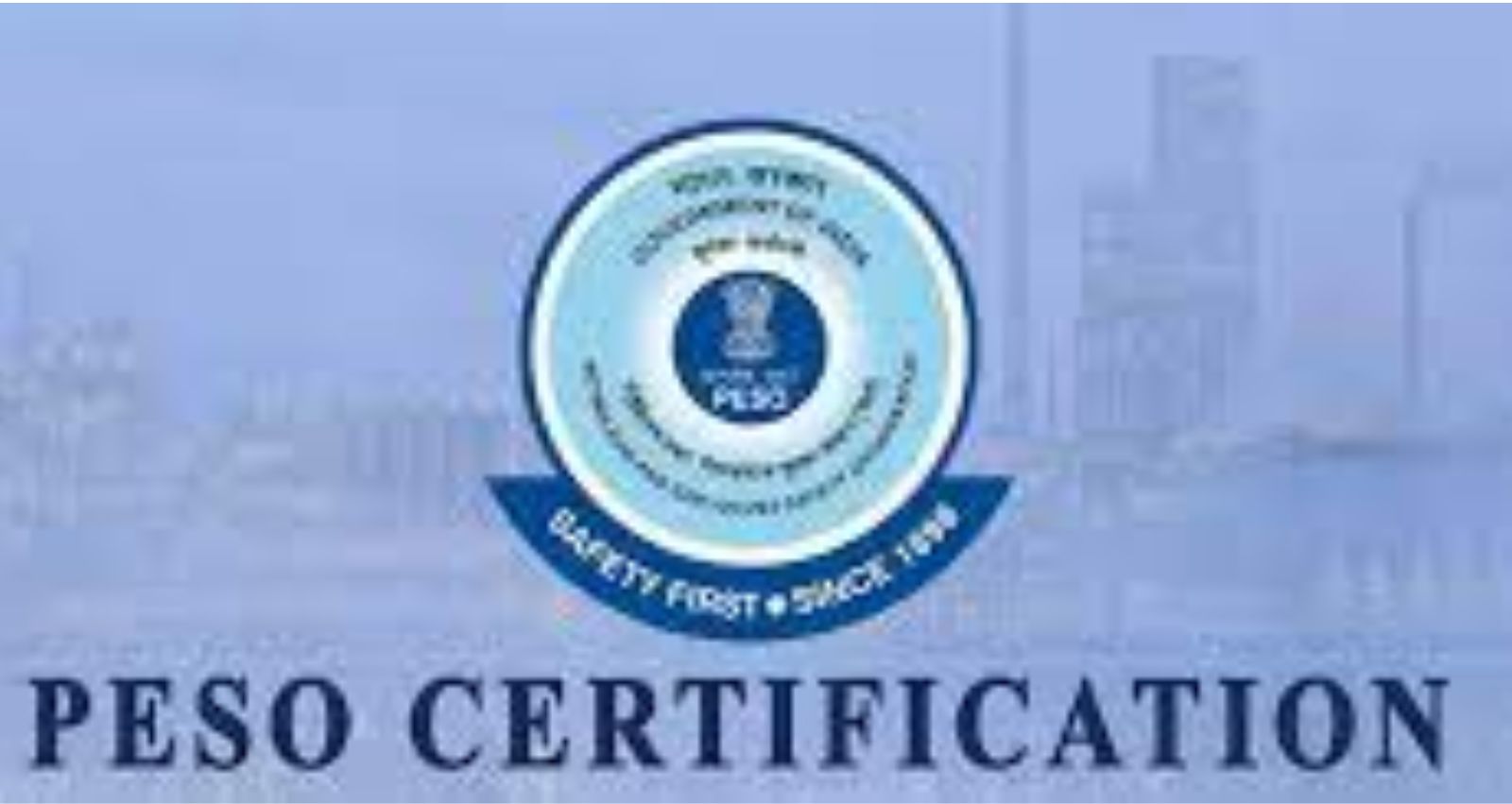
PESO Certification
PESO Certification, also known as Petroleum and Explosives Safety Organization Certification, is a process of obtaining certification or approval for equipment and products related to the storage, transportation, handling, and use of petroleum, explosives, and other hazardous materials in India. PESO is a government agency under the Ministry of Commerce and Industry in India responsible for regulating and ensuring the safety of such materials. Here are key points about PESO Certification:
- Scope of PESO Certification: PESO Certification covers a wide range of equipment, products, and activities, including but not limited to:
- Storage tanks and containers for petroleum products.
- Explosives and fireworks manufacturing and storage.
- LPG (liquefied petroleum gas) installations and cylinders.
- Compressed natural gas (CNG) and liquefied natural gas (LNG) equipment.
- Transport vehicles for hazardous materials.
- Safety appliances and equipment for use in hazardous environments.
- Certification of manufacturers, importers, and vendors of hazardous materials.
- Safety and Regulatory Compliance: PESO Certification ensures that equipment and products meet specified safety standards and regulatory requirements. It is essential for preventing accidents, fires, explosions, and environmental hazards associated with the handling and use of hazardous materials.
- Types of PESO Approvals: PESO offers different types of approvals and certifications, including:
- ISI Mark Certification: This certification is applicable to certain products, such as LPG cylinders and pressure vessels, indicating compliance with Indian Standards (IS).
- Type Approval: Type approval is granted to manufacturers of equipment and products, confirming that their designs and manufacturing processes meet safety and performance standards.
- License for Storage: Businesses and entities that store hazardous materials, such as petroleum products or explosives, may require a license from PESO to ensure safe storage practices.
- Transportation Approvals: Vehicles used for the transportation of hazardous materials, such as explosives or chemicals, must obtain approvals from PESO to ensure compliance with safety regulations.
- Application Process: To obtain PESO Certification or approvals, applicants typically need to submit an application to the relevant PESO office along with the required documentation, test reports, and fees. The application process may involve inspections and audits to assess compliance with safety standards.
- Penalties for Non-Compliance: Non-compliance with PESO regulations can lead to penalties, fines, legal consequences, and, most importantly, risks to public safety and the environment.
- National and State-Level Authorities: PESO operates through regional and state-level offices to enforce safety regulations and grant approvals as per the Explosives Act, 1884, and the Petroleum Rules, 2002.
PESO Certification is essential for ensuring the safety of people, property, and the environment when dealing with hazardous materials. Businesses and individuals involved in activities related to petroleum, explosives, and other dangerous substances in India should be aware of the specific requirements and standards relevant to their operations and seek PESO approvals where necessary. Compliance with PESO regulations is a critical aspect of industrial safety and environmental protection in India.
